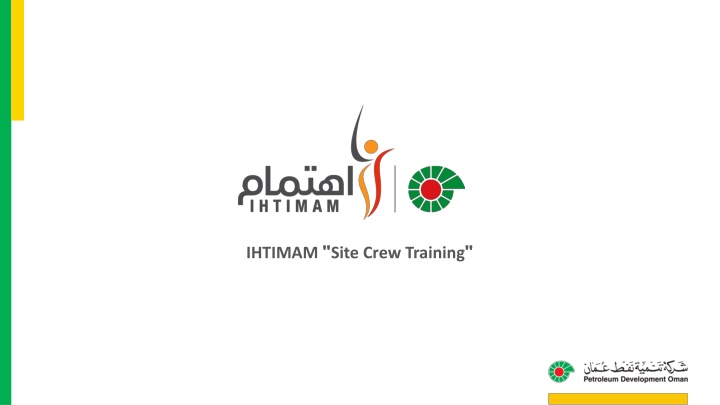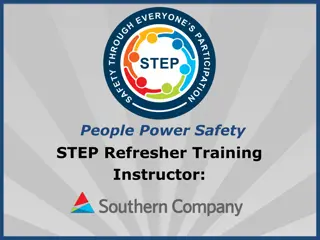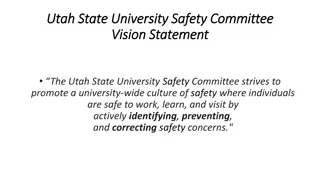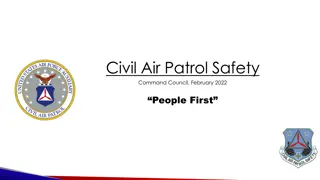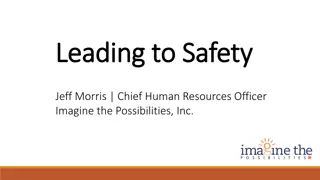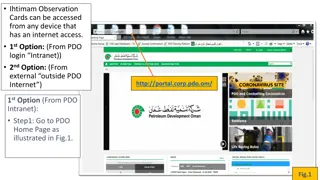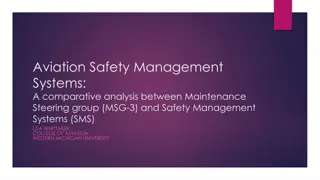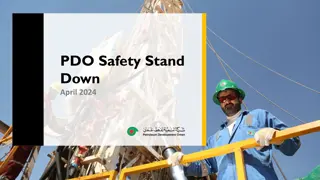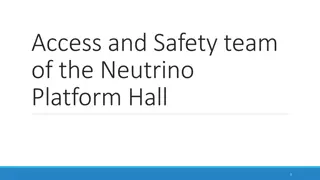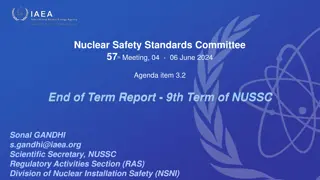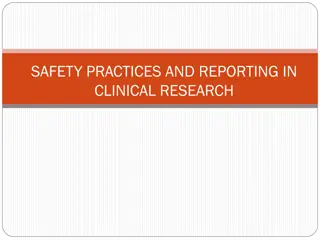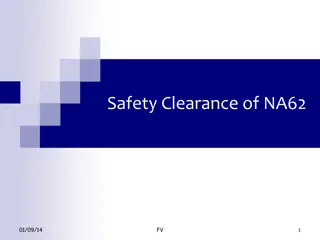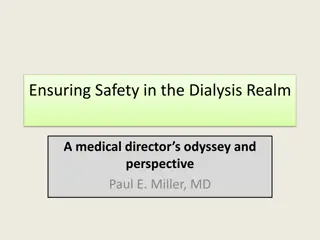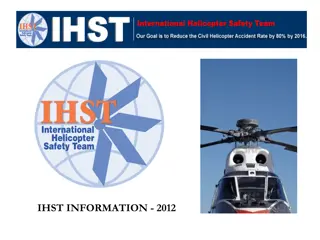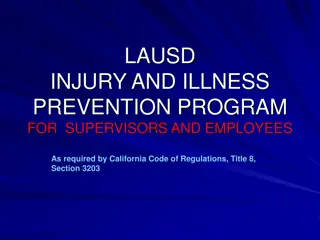Enhancing Safety Culture through IHTIMAM Program
The IHTIMAM program focuses on Behavior Based Safety, emphasizing observation, feedback, and continuous improvement to enhance safety culture. It customizes safety approaches, involves office personnel, and simplifies processes while promoting employee engagement. By contrast, traditional methods like STOP lack the same depth and effectiveness. Key elements of IHTIMAM include observation cards, feedback analysis, action tracking, and tailored training. The program aims to create a safety-focused work environment by prioritizing quality over quantity in safety management.
Download Presentation

Please find below an Image/Link to download the presentation.
The content on the website is provided AS IS for your information and personal use only. It may not be sold, licensed, or shared on other websites without obtaining consent from the author.If you encounter any issues during the download, it is possible that the publisher has removed the file from their server.
You are allowed to download the files provided on this website for personal or commercial use, subject to the condition that they are used lawfully. All files are the property of their respective owners.
The content on the website is provided AS IS for your information and personal use only. It may not be sold, licensed, or shared on other websites without obtaining consent from the author.
E N D
Presentation Transcript
Introduction Safety Induction / Safety Moment .. Why are we here ? Why the change from STOP ? IHTIMAM pilot ?
Behavior Based Safety What is Behavior Based Safety? 1. An Observation process (a way to understand why people behave the way they do) 2. A collection data tool to study the quality of the company's safety management system 3. The way we do things around here. (Our Safety Culture)
Safety Culture Behavioral Factor What do we actually do on a daily basis to improve safety Psychological Factor How people think and feel about safety. Their beliefs & attitudes. Leadership Hearts & Minds Daily Actions Safety Leadership Management Systems Situational Factor This is what the organization does to control safety, and involves a wide number of things such as the physical environment, management systems, communication, monitoring and controls, resources etc. By Dominic Cooper
Behavior Based Safety What Behavior Based Safety is NOT ? Only about observations and feedback Concerned only about the behaviors of line employees Focused on incident rates A substitution for traditional risk management techniques Manipulation and blaming of people A process that does not require employee engagement & employment
STOP VS Ihtimam 1. CUSTOMIZED APPROACH 2. INCLUDES OFFICE PERSONEL 3. VERY SIMPLE 4. DESIGNED THROUGH ENGAGEMENT OF STAFF 5. OBSERVATION CARDS ARE LIMITED TO 4 - 6 FOCUS AREASTO 6. OWNERSHIP OF SYSTEM WITH SUPERVISOR. 7. COMPREHENSIVE ONLINE DATABASE 8. ONLINE ACTION TRACKING 9. TRAINING SPECIFIC TO AUDIENCE 10.4 LEADING KPI S MEASURE EFFECTIVENESS 1. ONE FITS ALL APPROACH 2. FOR FIELD STAFF ONLY 3. ORIGINALLY LIMITED TO SUPERVISORS 4. GENERIC OBSERVATION CARD 5. OBSERVATION CARDS NOT FOCUSED 6. TRAINING SPECIFIC FOR SUPERVISORS CASCADED TO ALL STAFF 7. PRODUCT DILUTION OVER TIME 8. DATABASE NOT USER FRIENDLY 9. NO ACTION TRACKING 10.QUANTITY OVER QUALITY
Fundamentals of Ihtimam 01 Observe 02 Observe Observe 06 Close Actions Close Actions 01 Observe an individual or group. 04 Close actions related to the CI Feedback observation. Feedback Feedback Analyse Analyse 02 Give constructive feedback, with the attempt to identify the root cause. 05 Analyze the data periodically for areas of improvement. 05 03 Analyze Document Continuously Continuously Improve Improve 04 Document Document 06 03 Document the observation in the database Enhance the system in order to improve ease of use, and Close Actions efficiency.
Determining Success (KPIs) Corrective Actions Completed Percent Safe Scores Quality Observations Quality Feedback
Observation card Each observation card is limited to 5 to 6 specific behaviors. This makes it easy for employees to focus on the critical behaviors
Conducting a Successful Observation Don t Hide let the person or people you are observing know you are there. It is normal to wonder, If they know I am there, they might do everything right. One of the goals should be to help create new habits, not to catch a rule violator. Observe Can the employee perform the task safely? . Do I see anything that concerns me? Your observation should find if workers can perform the task safely. You should proactively identify concerns that might increase the chances of an injury. Observations should not be used as a faultfinding opportunity. Ask If you see a safe precaution being taken or an exposure to risk, ask the most appropriate questions. For example: Why did you do it that way? Is that the way you always do it? Do you feel safe doing it that way? Is there a safer way to do it? Were you trained to do it that way? Reinforce importance should be placed on reinforcing what the worker is correctly doing to ensure that s/he is not just being lucky when it comes to injury prevention. If an individual has performed a discretionary precaution while performing the work, this is an excellent time to reinforce precisely what you observed and encourage him/her to continue. Express concern when a risk is identified during an observation, expressing concern is a preferred approach rather than stating someone is at risk and unsafe. If we do not show concern the individual may get defensive. If you show concern with how a task is performed, this offers a better chance for a conversation leading to an understanding of why risk is a part of the task.
Congratulations! You have completed the IHTIMAM Site Crew Training
